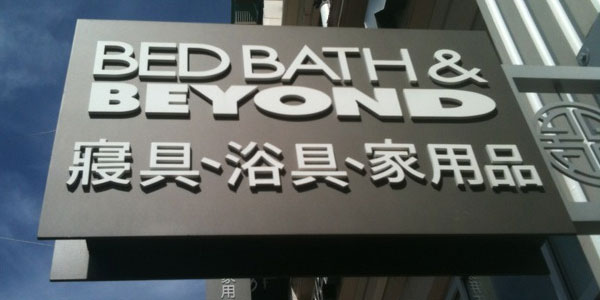Our internal e-mail lists have us discussing all kinds of stuff: Asian American identity, representation in the media, the experiences of activism in an academia setting and its progression as we transition to the working, adult world. And sometimes, we talk about the push by a Chinese Queens, NY councilman to make the signs in Chinatown less Chinese.
John: Personally, since my Chinese reading is quite limited and Spanish non-existent, I like the idea of having English on signs to understand what a store’s name is and what they are.
Akrypti: I agree with Koo. I am offended by expatriate communities in China that completely eliminate Chinese from their signs and only post in English. Likewise, there should be regulations in place here as well. Mandating that all signs be at least 60% English is reasonable.
Tina: I disagree mainly because it would be a financial burden on the shop owners to get new signs. Last thing we need to do is burden them with yet another cost when some of them are probably near closing, barely making ends meet. It might be the straw that breaks some of their financial backs.
Mike: I’m going to take the contrarian view and support Koo on this. When I was living in London and traveling all around Europe, I loved how so many shops had signs & menus in multiple languages. I’m sure it costed them more to do this, but the added revenue of a new customer base – I would guess – may have compensated for this. As an English-reading Asian American traveling in Prague or Lisbon, it made the world feel nice & small to me. Personally, I’d love to see more signs in multiple languages in the US too.
Tina: I think putting English on the signs is a good idea, but fining the businesses to force them to do so and then making them bear the brunt of the cost of such changes? Is there really no other option? Isn’t there a way to start small like require them to paste a standardized English sign on their windows first? (Sign better be provided by the city forcing them to do so.)
I’m all for shop owners expanding their customer base with more English language accessibility, but if we’re really doing this to help them, which I think it will, we shouldn’t be smacking them on the hands for not having English on their signs. That just makes me think of when my mom was in elementary school in Taiwan and kids had to wear a “I was bad today because I spoke Taiwanese” sign.
Mike: Look at that, you just answered your own question! I’d say that’s a creative cost-effective solution right there. A good business owner is nothing if not creatively cost-effective. 🙂
Koji: Because we don’t have an official language and because of freedom of speech, I think people should be able to put whatever they want on the signs as long as it’s not offensive/racist.
Contrast this with the notoriously bad Chinatown in Washington DC, where a lot of commercial chains have moved into the area: AMC Theaters, Bed Bath & Beyond, Hooters – and put up Chinese signage to convince visitors that they’re actually in Chinatown instead of, you know, The Grove. (In case you’re wondering: the signage at Hooters translates to the totally innocuous “owl restaurant,” Unless there’s some Chinese slang I don’t know about.) But what do you think – should English languages on storefronts be required?
(Photo credit: Ernie)









